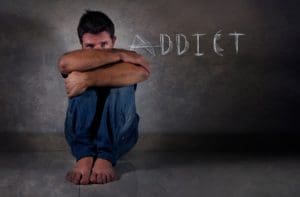Addiction Fact: Addiction is one of the most misunderstood conditions in today’s society. Roughly two-thirds of American families know a close loved one who is addicted to drugs. One of the best ways to understand what a loved one is going through is to know the little-known facts about addiction.
Five Things That You Might Not Know About Addiction.
Yes, Addiction Is A Disease
The American Society of Addiction Medicine defines addiction as,
Addiction is a primary, chronic disease of brain reward, motivation, memory and related circuitry. Dysfunction in these circuits leads to characteristic biological, psychological, social and spiritual manifestations. This is reflected in an individual pathologically pursuing reward and/or relief by substance use and other behaviors.
Many people are unaware that addiction is actually a disease. Once an addiction is active, addicts are not able to control their actions. The physical and chemical changes in the brain is why addicts need the substance to feel normal. However, that doesn’t mean that they aren’t responsible for their actions.
Often times people get the choice of using drugs mixed up with the disease of addiction. Why somebody chooses to use drugs and why they continue to use are not the same thing. Always remember that addicts are truly a victim of their disease just like people who are battling chronic conditions like cancer, diabetes, or heart disease.
What Is A Stereotypical Addict?
When you think of an addict, do thoughts of a dirty, homeless person or criminal come to mind? Despite common belief, a stereotypical addict doesn’t exist. The reality is that addicts can come from a variety of professions, backgrounds, and ethnic groups. They are professors, athletes, lawyers, nurses, and students. They are your friends, your children, your parents, and your neighbors. Addicts can be found in your offices, schools, and neighborhood restaurants.
Even more interesting is that a person can appear extremely successful by having a nice house, high-paying job, expensive car, and a seemingly happy family, but still be struggling with addiction. Given this, it’s safe to say that addiction has no boundaries. It can happen to anybody at any point in their lives.
True Or False? Addicts Are Unemployed And Street People.
The stereotypical image of addicts as unemployed or “street people” is not always true. Surprise, Surprise! Many people who are addicted to drugs are able to maintain a job. According to a recent study, approximately 70 percent of people who use drugs are gainfully employed. Although the majority of addicts hold down a job, many experience reduced productivity at work. Creating a drug free work force is essential for employee health and safety.

Prescription Drug Addiction Is A Huge Issue Among The Millennial Population
Did you know that prescription drug addiction is a big problem among young people? Much research has suggested that some teens are gaining access to their parents medicine cabinets to obtain prescription medications like OxyContin and Vicodin. In addition, a handful of young people are obtaining prescription medications on the street or from friends.
Although these pain pills are legal, they must be used by the person for which they were prescribed and according to the directions. The consequences of taking these medications without a prescription is often addiction and drug abuse. And an addiction to pain pills can easily and quickly turn to a heroin addiction. Consequently, it’s important that prescribed medicine be kept in a safe place.
Depression And Addiction Often Go Together
Due to the fact that depression and addiction are often diagnosed together, it’s likely that a person who is addicted to drugs is probably depressed too. In fact, the Journal of Clinical Psychiatry reported that roughly one in three people who overuse drugs also experience depression.
When depression and addiction occur together, the consequences can sometimes be deadly. Much research indicates that addicts who are depressed have a 25 percent chance of committing suicide. They are also more likely to experience addiction relapse. Addiction can derail depression treatment too since drugs can counteract antidepressants, thus making them extremely ineffective. In order to conquer depression and addiction, consistent therapy is absolutely necessary.












































